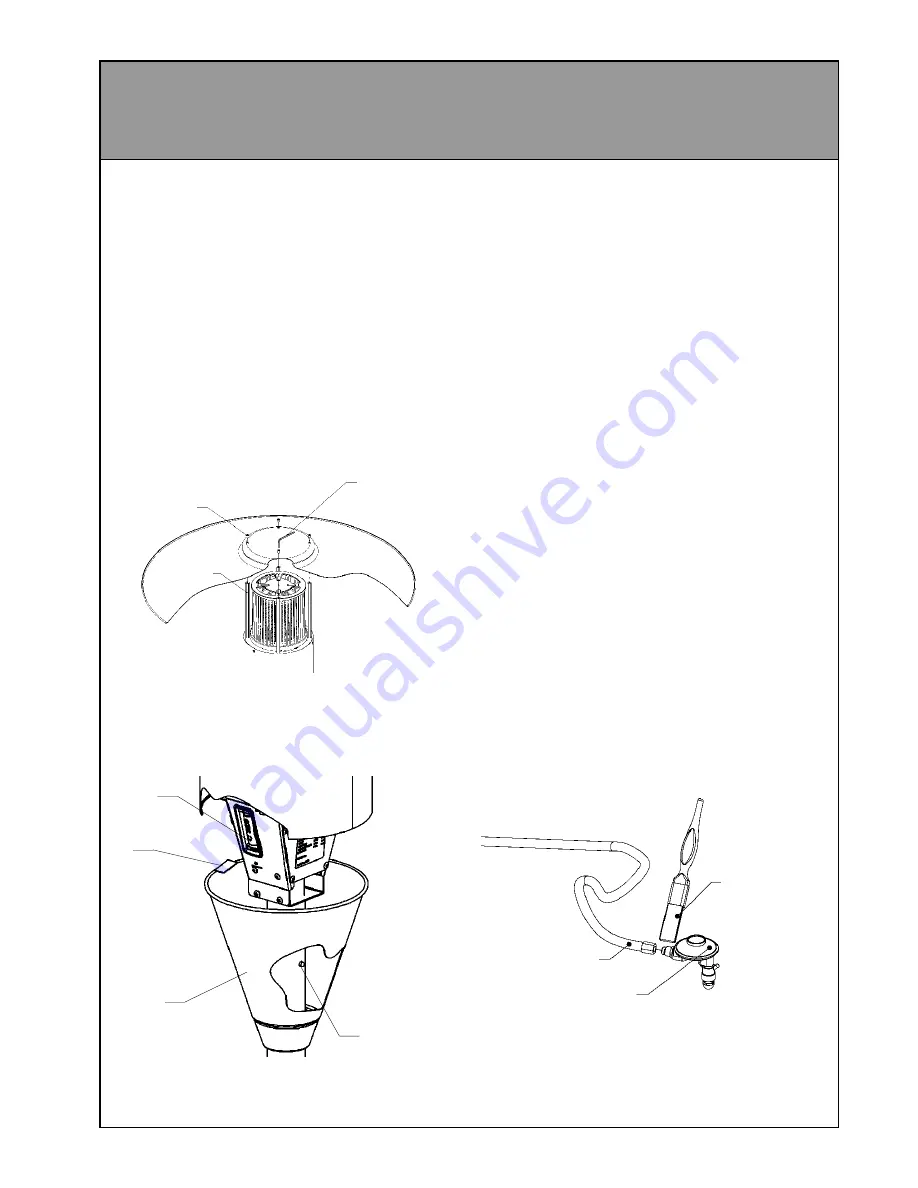
9
9 Remove the plastic wrap from the burner
assembly and carefully place the hood on
top of the burner assembly as shown
below, and align the four holes in the hood
with the chrome rods on the burner
assembly.
10 Using the 4 mm allen key (this is held by a
plastic clip on the side of the burner
assembly) attach the hood using the
stainless steel button head cap screws. Do
not tighten the screws until all four are in
place. You may need to tilt the unit over or
use a step ladder to attach the hood.
11 Remove the plastic tag from the end of the
battery terminal and slide the battery cover
up until it passes the button on the pole.
M6 x 12
Button-head
cap screw
Chrome bar
4 mm Allen key
stored on side
of burner assembly
under battery cover
Gas supply hose
Regulator
Paint brush
with soap solution
12 Attach the gas supply hose
(refer page 3,
connecting gas bottle)
to the regulator and
tighten using a spanner.
IMPORTANT: YOU MUST TEST THIS
CONNECTION FOR GAS TIGHTNESS
BEFORE OPERATING THE HEATER.
Release
button
Battery
Transit
tag
Battery
cover
To test for gas tightness:
1 Fit the regulator to a properly filled gas bottle
and tighten by hand. (Note: turn fitting counter-
clockwise to tighten)
2 Fully open the valve on the gas bottle.
3 Using a brush or spray bottle, apply a solution
made up of liquid soap and water to all gas
connections to the regulator.
4 If bubbles appear then there is a leak .
5 If a leak is detected you must shut off the valve
immediately. Re-tighten the leaking connection
and re-test. If a leak is still detected then
contact the retailer where the appliance was
purchased from or an approved service
technician.
Summary of Contents for PATIOSSL
Page 6: ...6 OUTDOOR AREA CONTINUED...










